ICU Temperature Monitoring
If you’re looking for a cloud-based wireless temperature monitoring system that eliminates manual logging, improves compliance readiness and protects all your temperature sensitive assets, you’ve arrived at the right place.

Let us help you evaluate your needs!
- Safety: Alerts via text, email, push notifications and phone calls to protect your precious assets
- Compliance: Automated compliance reports
- Efficiency: Reduced Manual Logging and time spent on reports
And what makes us different?
- Lifetime Warranty: Never buy hardware again!
- Unlimited Users: Scale across your entire organization
- Connectivity Flexibility: Wi-Fi, Cellular or Data Hub
- Phone call alarms: Alerts won't get ignored
- Mobile App: 500 Freezers in your pocket
- Facility monitoring: Simple to add water leak, door open, occupancy, and even IAQ monitoring
Engineered in Indiana with U.S.-based support.
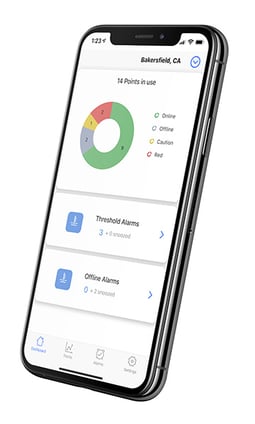
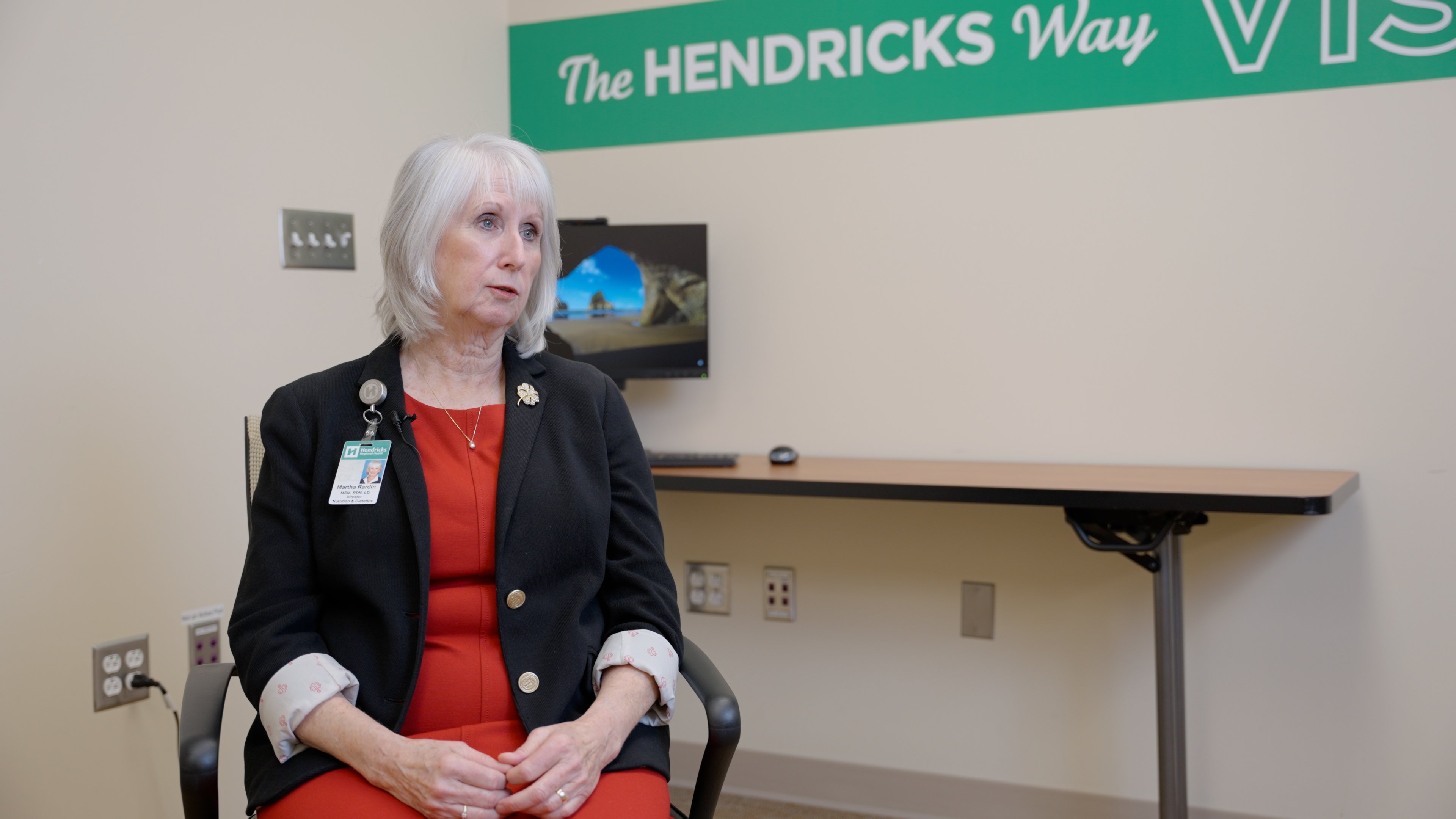
See What Customers Say About Sonicu
Asset Protection. Compliance Automation. And Reduced Manual Processes.
Sonicu serves thousands of professionals at hundreds of organizations across North America by improving how they monitor and manage their most sensitive assets and environments.
Professionals from healthcare, life science, laboratory and cold chain facility management turn to Sonicu to help them improve the way they do business.
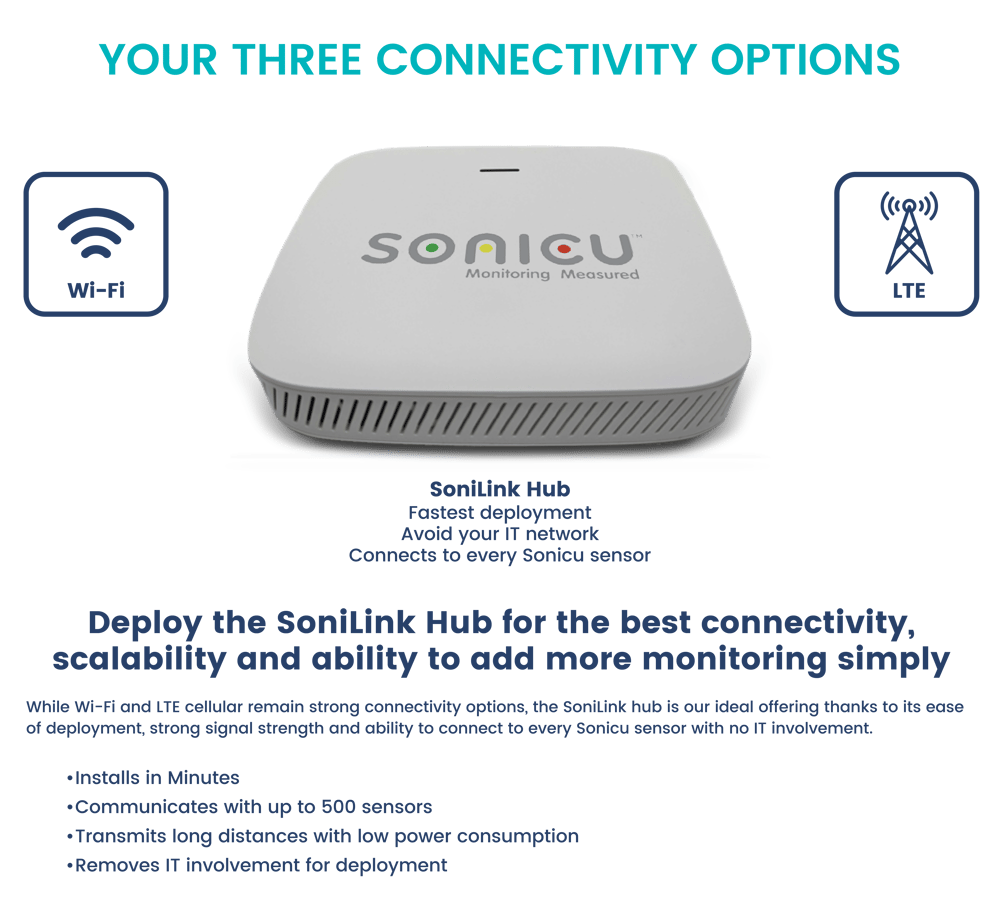
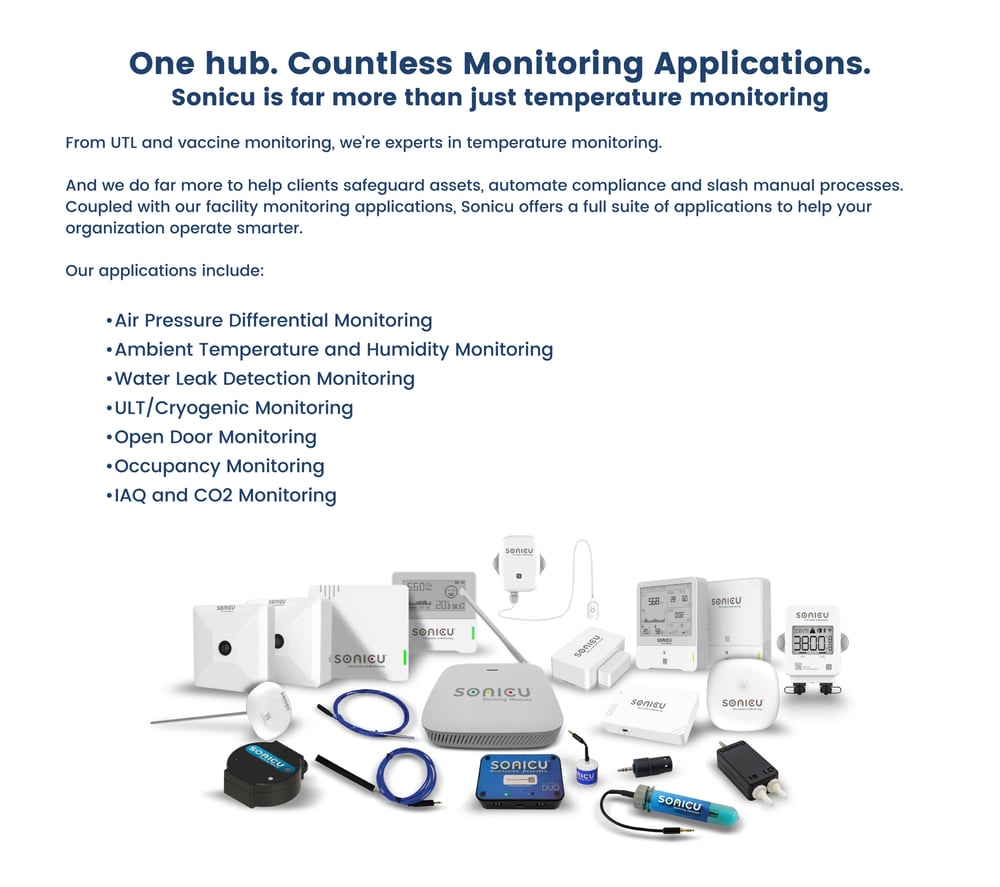
Our Customers Save Lives.
At research or university locations without beds, it’s not hard to imagine the time savings alone by simply not having staff manually record temperatures several times per day.
Sonicu has recently introduced its new SoniShield View in-room display which can show in real-time air pressure differential status.
And when coupled with the Sonicu Data Concentrator, facility managers can simply and affordably connect air pressure differential monitors from across an entire enterprise to their existing Building Automation (Management) System.
This commitment to innovation that helps our customers perform their jobs better, coupled with our American-based customer support that is never more than a phone call away is why Sonicu enjoys a 95 percent customer retention rate.
While our technology is intuitive and powerful, we know it’s only as strong as the people who stand behind it.
We save them time and money.
Any condition, any environment, any challenge.
The finest names in healthcare turn to Sonicu to improve safety, compliance readiness and staff efficiency.
Before Sonicu, we had to don bunny suits to check the status of our cleanrooms. Now we check our phones and know right away. The system saves us time and effort and helps us respond to environmental
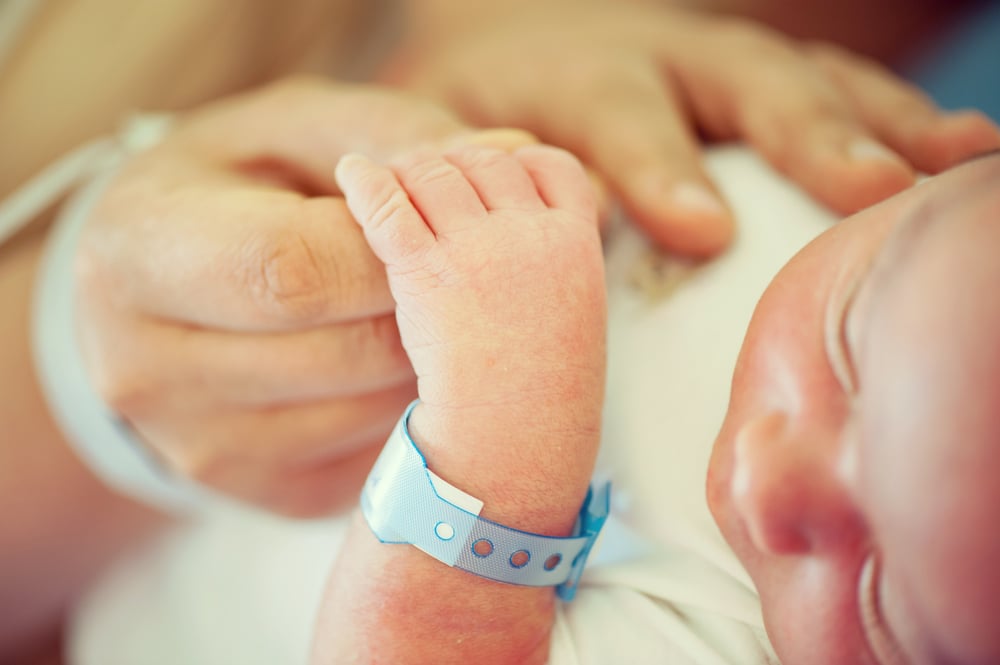
Temperature Monitoring
Temperature monitoring is a valuable measurement for many different types of industries.
Healthcare, food service, and labs are among some of the most popular industries where temperature monitoring systems can be of use.
When it comes to healthcare, one area where temperature monitoring can be crucial is in the ICU. ICU is the shortened acronym for “intensive care unit.” This area is the area of a healthcare facility that treats patients who are severely ill. These specialized hospital wards care for patients who have acute needs for respiratory or organ support as well as patients who have chronic impairment of one or more organs.
How can temperature monitoring benefit your healthcare facility’s ICU?
Since an ICU is where many hospitals care for critically ill patients, it is essential that these departments have accurate and careful monitoring capabilities for many variables.
An ICU temperature monitor is one of the types of monitoring tools that can be essential for intensive care units. There are often a number of equipment, medications, or biological components that need to be kept at a low temperature to avoid perishing.
This means that having a temperature sensor and monitoring system can be crucial to helping ICU patients get the right kind of medication, support, or even blood or organ transplants that they may need.
It is important to note the difference between core temperature and surface temperature when talking about temperature monitoring for patients.
Core temperature refers to the body’s internal temperature, the temperature of a person’s internal organs.
Surface temperature, on the other hand, is the temperature of one’s skin.
This can vary based on the environment the person is in. When it comes to temperature monitoring kits and systems for hospitals, you are likely going to be focusing more on the surface temperature of your patients.
While surface and core temperature sites differ quite a lot, there is a relationship between the two temperatures. This means that if you are able to monitor your patients’ surface temperature by monitoring the temperature in the room itself, as well as any equipment like heated blankets, you will be able to ensure that their core temperature is where it should be as well.
You can use a surface-to-core temperature download or chart to know what temperature you should be keeping your rooms at for your ICU patients.
You can learn more about how our software helps compliance professionals in these case studies:
Nomi Health: Fast installation, simple deployment
Problem: A rapidly growing healthcare technology startup needed to scale quickly and monitor cold chain storage devices nationwide.
Solution: Implemented Sonicu's temperature probes with a central command center for enterprise visibility, allowing fast and easy training for reps across the country.
CleanSlate: Addiction Treatment Centers
Problem: A Boston-based addiction treatment center needed an affordable and simple monitoring solution for their facilities across the United States.
Solution: Choose Sonicu for its affordability and ease of self-installation, supporting the center's mission to manage growth and improve service delivery nationwide.
UHS: South Texas Health System, Edinburg
Problem: Fire alarm testing disrupted the environmental conditions in Operating Rooms, causing compliance and operational challenges.
Solution: Implemented Sonicu's environmental monitoring system, which allowed the facility manager to monitor conditions via a mobile app and resolve issues with the HVAC system triggered by fire alarms.
Temperature Monitoring In ICU
As mentioned above, an ICU, or intensive care unit, is a specialized part of the hospital that is dedicated to providing care to critically ill patients.
These units should have an enhanced monitoring system, specialized equipment that is capable of providing support to multiple organs should they need it, and specialized medical and nursing care for patients.
The monitoring of critically ill patients in ICU rooms is incredibly important because these patients are the ones who are the most at risk in your healthcare facility. Patients can be placed in the ICU for acute medical problems or chronic medical problems, and both of these situations require careful and accurate monitoring.
You may be wondering what exactly you should be monitoring in your ICU units.
In truth, there are a number of things that should be kept at a controlled level. Things like ICU temperature, room pressure, state of equipment, and more should all be reported so you can be certain that your patients will be comfortable and safe in intensive care units.
Monitoring equipment in ICU rooms is also critical to ensuring that you will be able to provide the support and care that your ICU patients require.
Because there are so many things to keep track of in these intensive care units, it can be extremely beneficial to utilize an automated system for monitoring at least some of the variables in each room.
For example, you can use an automated remote temperature monitoring kit, like Sonicu’s SoniShield.
These temperature monitors can ensure that your valuable assets — such as medications, equipment, blood supplies, or other biological components — remain in peak condition and do not perish because they are too warm.
Customers rely on Sonicu’s real-time alerts to react to any potential temperature or environmental condition excursion that could adversely impact operations.
ICU Temperature And Humidity
Two incredibly important variables to monitor in your ICU rooms are temperature and humidity.
Because patients in intensive care units are critically ill, it is crucial that you provide them with a space that is clean, properly ventilated, and at the right temperature.
If your room is too humid, it could cause issues for the patient and potentially even lead to contamination. Similarly, if the room is not warm enough, the patient could have trouble recovering and suffer complications.
To ensure that your ICU rooms are held at the right specifications for keeping your patients safe, you will want to utilize an ICU temperature monitor as well as a monitor to track humidity and other air changes.
You want to know what the air changes per hour in ICU rooms are so that you can effectively monitor your patients and ensure that all critical environments rooms are kept safe for them.
There are a number of tools that you can use to monitor these variables.
Some tools may be easier to use than others, but because of the importance of a well-monitored ICU room, it can be best to utilize an automated solution like Sonicu.
Sonicu offers temperature, air pressure, and humidity monitoring tools that all come together in a single, integrated system that you can use to monitor your ICU rooms.
Using this system, you can easily monitor your ICU room temperature in Celsius or Fahrenheit as well as easily view and manage your room humidity and air pressure from the SoniCloud platform.
Temperature Management In ICU
One of the most important aspects of your intensive care units to monitor is temperature.
Human bodies react in predictable ways to certain temperatures, and there are some temperatures that are more conducive to healing and recovering than others.
If the temperature is too low, your patient could get a fever in ICU care — which would then require additional care.
Similarly, if the room is too warm, it could cause other issues within the body.
This is especially true for patients who may be in intensive care for a neurological issue that is affected by heat, such as multiple sclerosis. For this reason, targeted temperature management in neurological intensive care units is critical to the recovery and safety of ICU patients.
Monitoring your facility’s ICU temperature is essential to knowing how your patients are going to be able to recover. You will want to keep these rooms at a stable and comfortable temperature because that will likely provide the best recovery environment for them.
Whether you record your ICU room temperature in Celsius or Fahrenheit, it is important to have an easily accessible and intuitive system for recording and monitoring this temperature.
ICU Monitoring Guidelines
Whether you are wondering about the importance of air conditioning in hospitals or you are simply wondering how strict hospital guidelines are for the ICU, there are many resources online that can detail hospital requirements.
Just like many other aspects of hospital monitoring, there are strict ICU monitoring guidelines that hospitals must comply with in order to best care for their critically ill patients.
These guidelines may change from state to state, but they are likely to have similar requirements because many hospitals utilize the same types of equipment and medication.
This said, keeping track of all of the guidelines manually can be quite challenging.
Luckily, if you use an automated system, like Sonicu, to monitor temperatures, humidity, and air pressure, you can more effectively manage these variables and easily keep in compliance with the guidelines.
If you are looking to ensure targeted temperature management, ICU temperature monitors can be a great tool for you.
Sonicu’s SoniCloud provides a full suite of management tools to simplify regulatory compliance so that you can focus on treating your patients and feel confident in your monitoring and reporting tools.
You can learn more about how our software helps compliance professionals in these case studies:
Boy Scouts: Protecting Campers from a Temperamental Walk-in Cooler
Problem: An aging walk-in cooler failed at a remote campground in Ohio, causing significant food loss and logistical challenges for the Boy Scouts.
Solution: Sonicu provided a system that was easy to install, connected with a mobile app, affordable for a non-profit budget, and automated the required manual logging.
Hamilton County, Indiana Health Department: Vaccine Monitoring
Problem: The need to protect vaccines from temperature excursions and meet state compliance requirements with an outdated analog system.
Solution: Implemented a new monitoring system with a mobile app and robust support, enhancing the management of remote COVID-19 vaccination programs.
Katherine Shaw Bethea Hospital: Pharmacy Monitoring for Remote Clinics
Problem: After a freezer failure led to a loss of drugs, the pharmacy director needed a reliable and simple monitoring solution for multiple remote clinics.
Solution: Adopted Sonicu's temperature monitoring system, enhancing audit readiness and deploying a mobile app to employees across clinics in Illinois.
Management Of Temperature
Ensuring the constant monitoring and management of temperature in a hospital is crucial to not only the comfort of patients but also the safety of certain medications, equipment, and other components that hospitals need to provide care.
This means that having a reliable and easy-to-use temperature monitoring system can be essential.
With an effective temperature management system, such as Sonicu’s, you can viewICU normal values so that you can feel confident that your intensive care units are being kept at the right temperature.
AGAIN, we don’t do controls. We are only monitoring!!
By having a preset normal temperature and humidity in ICU rooms, you can ensure that your patients are being placed in a room with the right conditions for them to recover best.
Additionally, with a system like Sonicu’s, you can be immediately notified when or if a room is no longer within the normal range you have selected.
This way, you can make immediate changes to the room before any equipment or medication can fail and before it causes harm to your patient.
Hospital HVAC System Design
The HVAC system in hospitals and other healthcare facilities is one of the most important features to get right.
This system requires constant monitoring and management to prevent any failures in any of the three areas that it controls.
The HVAC system controls the heating, ventilation, and air conditioning of the healthcare facility.
Because of this, it is essential that hospitals utilize effective monitoring tools to measure and manage temperatures, air pressure, and humidity levels in rooms in case of an emergency, such as an HVAC failure or power outage.
Even the most elaborate and well-maintained ICU HVAC design can experience a failure due to a power outage or other issues.
This means that you need to ensure you have the tools and monitoring system in place to catch these failures and notify you immediately.
Sonicu does this by offering 24/7 monitoring and notifications so that you can be certain that if something happens, you will know about it quickly so you can take action and prevent huge losses.
American-based Customer Support: Robust & Reliable High Touch Service
Software and technology is only as good as the people who stand behind it.
At Sonicu, that means our team of American-based customer success managers who are never more than a phone call away to help field and fix any service issues.
Our probes and sensors are placed in demanding frozen environments and our software literally sends billions bits of data monthly, meaning there’s alway the potential for a hiccup on either the hardware or software.
We are committed to fielding every customer service request promptly and addressing our customer’s concerns promptly and professionally.
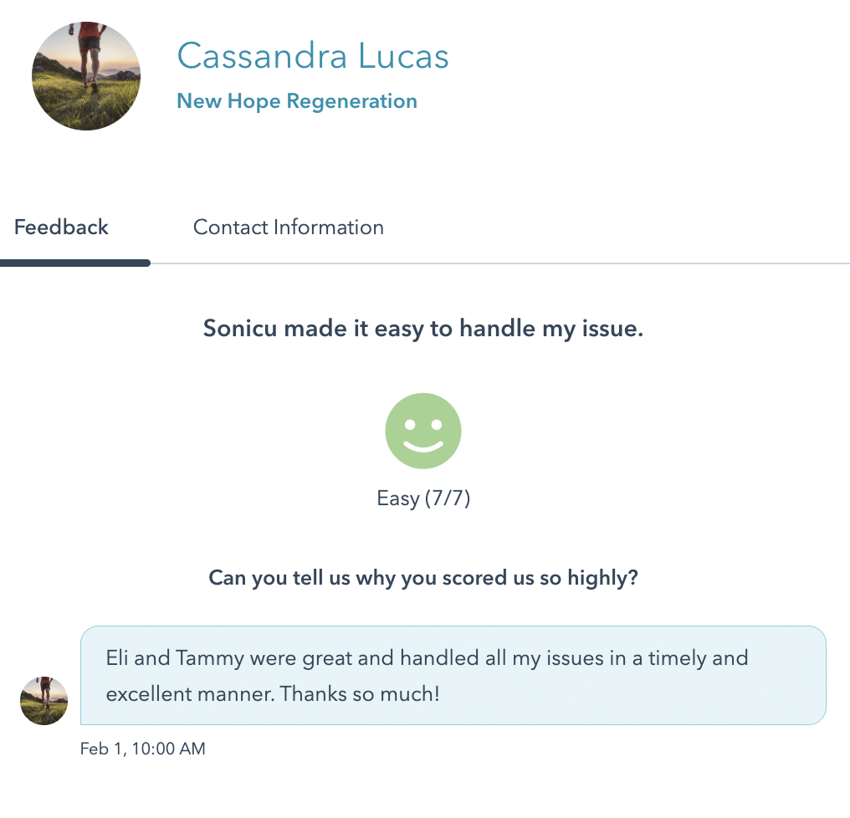
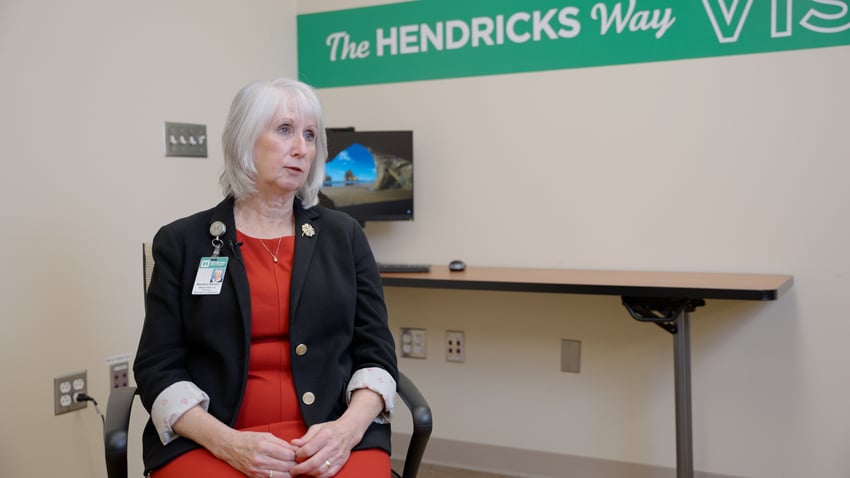 “I like to say that every refrigerator or freezer is like a car in that they all behave a bit differently,
“I like to say that every refrigerator or freezer is like a car in that they all behave a bit differently,
and then every now and then you just get a bad boy who doesn’t want to perform as we need it to,”
Martha Rardin, Director, Nutrition and Dietetics, Hendricks Regional Hospital.
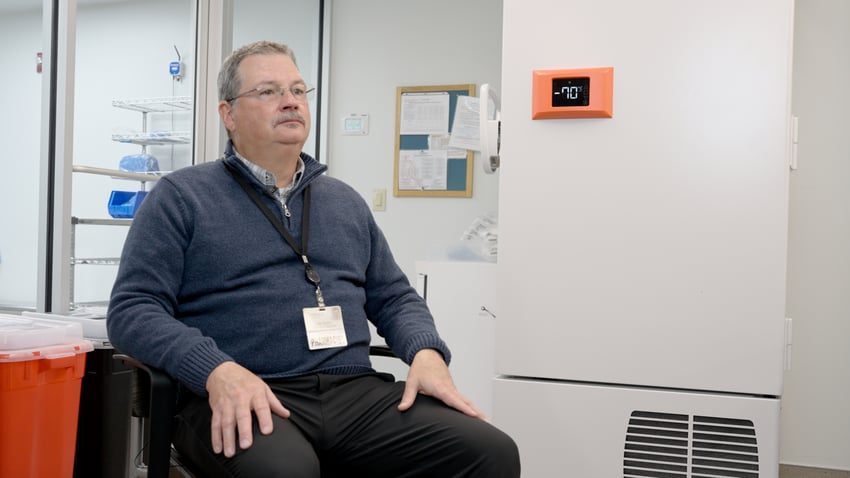 “Sonicu has been a powerful tool to identify which units are behaving out of spec and get our team
“Sonicu has been a powerful tool to identify which units are behaving out of spec and get our team
to fix them before we have a serious issue.”
Tim Livesay, Director, Hancock Regional Hospital Pharmacy Director


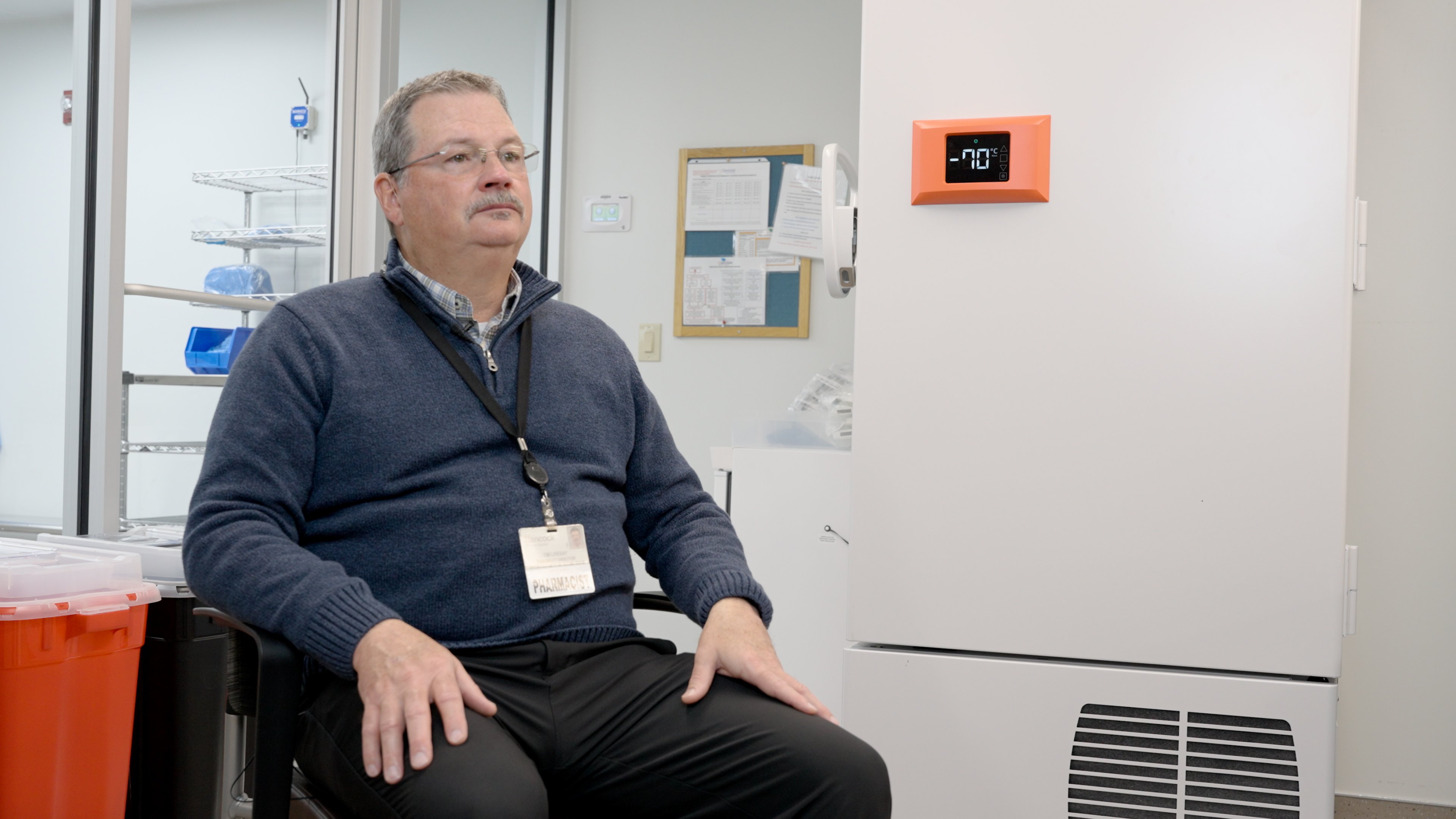







We realized there had to be a better way and went in search of technology that could give us that level of monitoring that would keep our patients safe. Sonicu made it easy and we grew across the entire hospital.